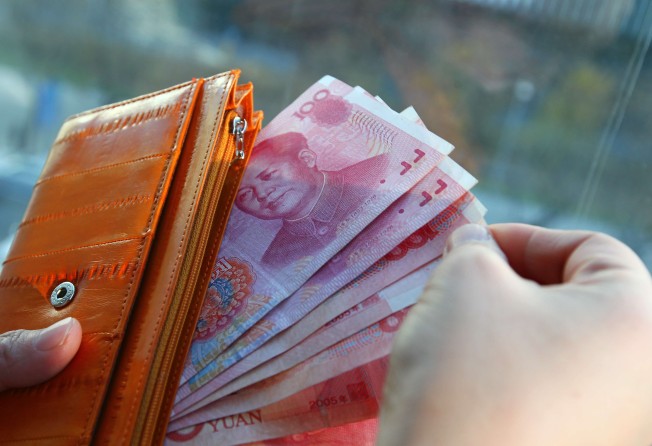Why China’s outbound shopping spree may have peaked
Chinese interest in outbound acquisitions remains high, but global uncertainty and added scrutiny from Beijing may dent deal volume, say analysts

China’s outbound shopping spree probably peaked this year - but there’s still plenty of interest in buying up companies, say analysts.
Earlier this month, Beijing announced it was increasing oversight of international acquisitions, the latest move in a bid to stem capital flight and protect the weakening yuan.
The added scrutiny, coupled with heightened uncertainty stemming from European elections and Donald Trump’s inauguration as US president, may see the volume of outbound M&A deals brought down next year after hitting record highs in 2016, as inexperienced companies wait on the sidelines and investments that lack obvious rationale get pushed back.
Emma de Ronde, a partner at Hong Kong-based law firm Norton Rose Fulbright, said it would not surprise her if outbound deals had peaked in 2016 and dropped off next year.
“I think there are going to be some high-profile deals that might be harder to get through,” she said, noting real estate was a particular focus for the regulators.
“It wouldn’t surprise me if we’d seen the peak this year, and if there is a pullback from next year.”
Chinese acquirers spent around US$213 billion on more than 700 outbound deals in the first 11 months of this year - up on last year’s US$83 billion on 527 deals for the same period, according to Dealogic data.
China’s non-financial overseas direct investment increased 55.3 per cent year on year between January and November, China’s Ministry of Commerce announced this week, according to a Shanghai Daily report.
Paul Hastings partner Nan Li said there was “growing uncertainty” around whether outbound M&A momentum would continue next year, due to Beijing’s tougher restrictions and the recent depreciation of the renminbi, which sank to an eight-year low against the US dollar last month.
Stenvall Skoeld & Company managing director Per Stenvall believes Beijing’s moves would keep outbound deal values in check rather than actually bringing them down.
“Some M&A in the short term will be a casualty of these policies,” he told the Post over the phone from Shanghai. “There will be some sound deals that will not go through as a result of the policy.”
He had already seen Beijing making it harder to get money out of the country this year, even before the most recent policy announcement which means all overseas payments larger than US$5 million may need to be cleared before going ahead.
But in the longer term, he believes the government wants to support M&A and foreign investments in general.
“They definitely want to stop capital outflows because they want to have a stable yuan and keep a certain foreign exchange level, but they’re not anti-M&A,” Stenvall said.
“I think they want to stop irrational deals. But the key point there is that the policy will mainly affect larger financial investments, and strategic investments [where there is actually a rationale] will be less impacted.
“The government has to support M&A and outbound investment to allow Chinese companies to become globally competitive, but also to allow asset managers like insurers to achieve their objectives.”
Brett McGonegal, chairman at Capital Link International, was also expecting a pause in China’s outbound buying spree - although experienced, privately owned businesses and some state owned enterprises may try different approaches to get money offshore.
“The current time period will see a lull as many new initiatives need to be digested,” he told the Post.
“Experienced players will look for new vehicles and strategies while the inexperienced pause and await instructions.”
The most common approach is fake invoicing, where companies use an invoice for goods and services as an excuse to take money offshore, according to a CLSA report.
“Fake invoicing has been the most prevalent way to get hot money out of the country and the amount has been on the rise post-global financial crisis,” the report said.
“Fake invoicing is difficult to control and we believe that it could amount to an estimated US$246 billion for 2016. It is likely to be a similar amount for 2017.”
Unfortunately for acquisitive Chinese companies, Beijing’s latest moves might not be the end of the tightening.
The key driver for capital outflows was the yuan depreciating against the greenback. It could fall to 7.2 to the dollar by the middle of next year, JP Morgan chief China economist Haibin Zhu said.
Each significant new level “triggered a new round of panic” as Chinese companies and individuals rushed to move money out, he said.
“It should not be surprising that further measures could be taken in the coming months to restrict ‘suspicious’ transactions of outbound FDI (foreign direct investment), slow down cross-border transfer by individuals, and crack down on disguised outflows via current account transactions since the recent yuan depreciation and the annual quota cycle for individuals may trigger large capital outflows in December and January,” he said.